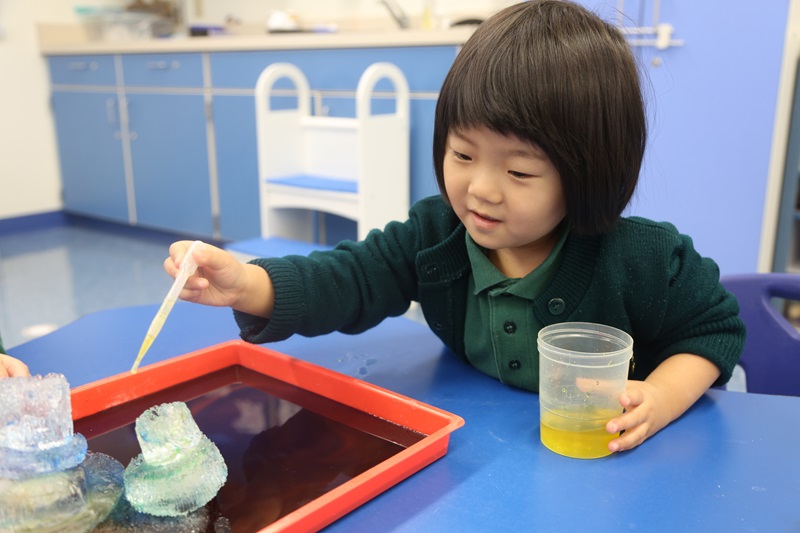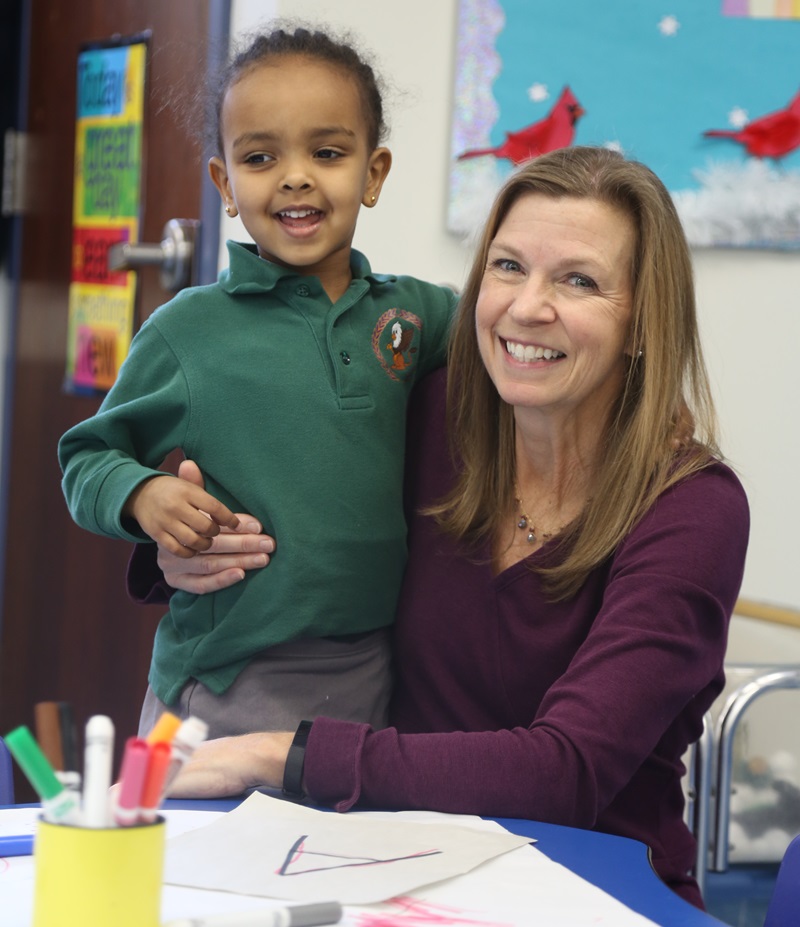Exploring the Social, Emotional, and Academic Benefits of Preschool

While raising children is a profoundly fulfilling journey for caregivers, navigating the best educational path can often become overwhelming. It’s why many parents find themselves weighing and considering the value of enrolling their child in preschool.
If your young child is of preschool age, consider these six key advantages of preschool education. Discover why preschool is an invaluable stepping stone in children’s development and preparation for their future academic journeys.
Nurturing a Foundation for Success: 6 Advantages of Preschool
Enrolling your child in preschool provides these lasting benefits.
1. Preschool Prepares Children for School
A fundamental advantage of preschool education is its ability to effectively prepare children for the more structured environment they will encounter in kindergarten.
Even part-time preschool programs are crucial for smoothing a child’s transition to kindergarten.
Preschool sets the foundation for all these important school-related skills:
- Following routines
Preschool provides children with structured routines that help them understand the importance of order and predictability.
Through consistent daily schedules, children learn to follow routines. This includes arrival and departure procedures, transitions between activities, and group task participation.
Following these routines promotes organization, time management, and discipline, which are essential skills for future academic and personal success.
More on How Preschool Prepares Children for School
- Instilling hygienic practices
Teachers and staff emphasize the importance of cleanliness and hygiene by teaching children to wash their hands before meals, after using the restroom, and after participating in messy activities.
By practicing proper hygiene routines, children develop good habits that promote their overall health and well-being.
Preschool environments also maintain cleanliness standards, reinforcing the significance of hygiene in their daily lives.
And Most Importantly
- Encouraging responsibility for personal belongings
Young students learn to keep track of their backpacks, jackets, and other items they bring to school.
With the guidance of teachers and staff, children develop organizational skills by having designated spaces for their belongings and learning to pack and unpack their items.
This sense of responsibility helps children become more independent, accountable, and capable of managing their belongings effectively—both in and out of the school setting.
- Developing interactive skills
Preschool students learn essential interactive skills through group projects, cooperative play, and collaborative learning. They also practice communicating effectively, listening to others, sharing ideas, and collaborating on tasks.
These experiences foster:
- Social intelligence
- Empathy
- Teamwork
- Problem-solving abilities
The interactive skills cultivated in preschool lay the foundation for positive relationships, effective communication, and successful collaboration throughout the students’ lives.
These essential foundations equip children with basic life skills and prepare them for future academic and social experiences. These fundamental aspects of a preschool education contribute significantly to students’ growth, independence, and readiness for subsequent educational milestones.
2. Children Become Accustomed to Rules
Listening skills and the ability to follow instructions are vital traits, but they require time and practice to develop. Preschool provides young children with ample opportunities to refine these skills.
Children develop a sense of discipline and order by learning to follow basic instructions. This includes the following:
- Standing in line
- Washing hands before meals
- Taking turns
- Listening to teachers
The Westminster School preschool program, for example, incorporates a daily schedule that reinforces essential habits, ensuring proper hygiene and orderly conduct.
3. Preschool Promotes Social and Emotional Development
Rather than focusing solely on academics, preschool places a significant emphasis on fostering social and emotional skills in children.
During this schooling, children learn how to:
- Share with their peers
- Take turns during games and activities
- Empathize with others
- Express their emotions appropriately
These skills are crucial for kindergarten, elementary school, and all schooling beyond.
The Griffin Academy at Westminster School actively encourages socialization while nurturing kindness and respect in its students.
4. Preschool Offers Opportunities for Play
Play is an integral part of a quality preschool education, serving as the child’s natural way of learning.
By engaging with objects and interacting with their peers through play, children gain crucial knowledge.
They learn shapes and related concepts and how to solve problems. They also enhance their communication skills through role-playing and symbolic play.
Play in preschool offers children the freedom to:
- Explore different subjects
- Engage in creative activities
- Immerse themselves in literature
- Foster leadership and group skills
- Develop resilience and coping abilities
Westminster School’s private preschool ensures children have dedicated time for independent and group play, as well as thirty to forty-five minutes of outdoor recess when the weather permits.
5. Preschool Promotes Physical Development
Preschool provides a conducive environment for children to physically develop through various activities. These includes drawing, threading beads, cutting out shapes, and playing outdoors.
Preschool emphasizes:
- Fine motor skills
- Gross motor skills
- Active play
- Outdoor play
- Structured physical education
As children begin to hold crayons, zip jackets, and engage in physical play, their fine and gross motor skills improve.
The Griffin Academy schedule incorporates physical education. This promotes control, balance, coordination, and spatial skills and lays the foundation for positive health habits.
6. Preschool Students Develop Language Skills
Children between the ages of three and five undergo a significant expansion in their vocabulary. It’s a time of remarkable linguistic development.
Preschool teachers promote language skills by introducing new words during academic, artistic, and play sessions. Teachers encourage children to respond in complete, descriptive sentences by asking insightful questions.
Reading, singing, acting, and role-playing further provide opportunities for language development.
The Westminster School preschool prioritizes language skills through:
- Classroom library
- School library
- Independent library time
- Daily read-aloud sessions
- Language arts curriculum
- Book fairs
Through listening skills development, pre-reading, and phonics-based reading skills, Westminster School preschoolers develop the language skills required to begin kindergarten.
Extending beyond language development, the long-term benefits of preschool also include literacy skills and mathematical understanding.
Is The Griffin Academy at Westminster School Right for Your Child?

Choosing a high-quality, safe, nurturing preschool is crucial for providing children with endless opportunities for learning, development, and fun.
The Griffin Academy at Westminster School, a private preschool in Northern Virginia, offers precisely that. The student–teacher ratio never exceeds 10:1 per class, there’s a balanced approach between play and structured learning, all teachers are highly qualified, and the curriculum is comprehensive and age appropriate. The Griffin Academy is designed to promote well-rounded intellectual, social, emotional, and physical growth.
For parents seeking a private preschool in Northern Virginia, scheduling a tour and exploring the benefits of The Griffin Academy at Westminster School is just a phone call away.
To learn more or to schedule your tour, please get in touch with The Griffin Academy at Westminster School at (703) 256-3620.

